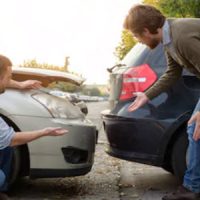Can You Be Sued if You Lend Your Car to Someone and They Crash It?

Many people freely lend their car to people they know. Maybe their sibling needs to go to a dental appointment, or their neighbor needs a vehicle while his is in the shop. No harm, no foul, right?
Actually, under Florida law, owners are opening themselves up to legal liability if the person who borrows the vehicle gets into a car accident and injures someone. This is the “dangerous instrumentality doctrine,” which you need to know about. If you have been injured, you might have to sue the owner of the car along with the driver.
What is the Dangerous Instrumentality Doctrine?
The doctrine initially arose when someone borrowed a dangerous tool and was injured by it. The law developed so that the person who owned the tool would bear legal responsibility for any injuries caused.
You might not immediately think that a vehicle is a “tool,” but in 1920 Florida’s Supreme Court extended the doctrine to include motor vehicles in a case titled Southern Cotton Oil v. Anderson. In that case, an injured passenger sued the company that owned the company car that caused the accident. The Supreme Court created a rule that whoever lets another person drive their vehicle becomes liable for any injuries caused when the borrower crashes it.
Why Does Florida Have this Doctrine?
The doctrine used to make perfect sense. Before Florida adopted no-fault insurance, injured victims had to sue the driver who was responsible for an accident if they wanted compensation. People who borrow vehicles do not have insurance that covers the vehicle, but the owner should. With the rise of no-fault insurance, the dangerous instrumentality doctrine makes less sense today.
However, there is still another reason to support it: the doctrine puts the burden on the car owner to carefully screen who they lend their vehicle to. The owner is often in the best position to judge whether the borrower is trustworthy, so they should bear the financial burden of the crash if they lend the car to someone who is careless or dangerous.
Are There Exceptions?
Yes. Not every vehicle is covered by this doctrine, such as:
- A rental vehicle is not covered, so you cannot sue a car rental company for the negligence of a person who leases a vehicle.
- A vehicle that is entrusted to a mechanic for repairs is not covered. So if an employee drives the car and crashes it, then the owner is not liable for an accident.
- If you recently sold the vehicle, you might not be liable if you have not yet gotten your name off the title.
- A stolen vehicle is not covered. You are not responsible if a thief takes off in your car and plows into pedestrians or another vehicle.
If you have a question about legal liability involving a borrowed car, contact Earnhart Law today. We represent the rights of motorists when they are injured in a crash. You can call 561-265-2220 as soon as possible. Our Delray Beach car accident attorneys offer a free initial consultation.
Resource:
courtlistener.com/opinion/3394928/so-cotton-oil-co-v-anderson/
https://www.delrayinjuryattorneys.com/tiger-woods-sued-under-floridas-dram-shop-law/
